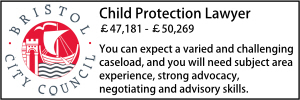Court of Protection judge issues reminder of need for order to authorise taking of samples
- Details
A senior judge has issued a reminder to practitioners, carers and those involved in taking samples in circumstances that, where the patient lacks capacity and an application has been made to the Court of Protection for an order authorising the taking of a sample, it will be unlawful for the sample to be taken without the Court's permission.
In DCC v NLH [2019] EWCOP 9 Lord Justice Baker said: “All practitioners and professionals working in this field ought to be aware that there is always a judge of the Family Division on duty available to sit in the Court of Protection twenty-four hours a day, seven days a week, every day of the year, to deal with urgent applications, usually by telephone.
“Consequently, there is no excuse for any failure to comply with the obligations to obtain the court's permission in circumstances such as these. As stated, no harm arose on this occasion, but any infringement in future will run the risk not only of attracting severe criticism from the Court but also potentially incurring liability for damages if a breach of human rights were to be established.”
Lord Justice Baker’s comments came after he made an order by consent in the Court of Protection on 12 July 2018.
The proceedings concerned a man, referred to as NLH, who was suffering in the late stages of the degenerative neurological condition known as Prion disease. The applicant local authority applied to the Court for an order permitting the taking of samples from NLH to assist with DNA testing. An order made by another judge sitting in the family court had declared that the outcome of the DNA tests would be of vital importance to the resolution of proceedings in that court.
“The results would be important not merely to establish paternity of the child in question but also because it was considered important that any child of NLH should be aware that there was a possibility that he or she might have inherited the disease so that, when the child was older, a decision could be taken about genetic testing,” Lord Justice Baker said.
“NLH himself had at an earlier stage told a social worker and the assistant care manager at his nursing home that he wanted the child to be made aware that he may have inherited the disease so that he would have the opportunity in due course to decide for himself whether to undergo testing.”
The application had been listed for a hearing before a circuit judge on a later date but NLH's condition deteriorated rapidly and it was decided to make the application as a matter of urgency to the out of hours duty judge sitting in the Family Division. The Official Solicitor, appointed to act as a litigation friend for NLH, agreed to the order being made.
Lord Justice Baker said: “There were plainly overwhelmingly strong arguments on this occasion in favour of making the order and, on receiving and considering the application, together with supporting statements and other documents, I concluded it would be appropriate to make a declaration (1) that NLH lacked capacity (a) to make decisions as to the provision of buccal swab samples, the testing of such samples and the profiling of his DNA and (b) to conduct these proceedings, and further (2) that it was lawful for the local authority to arrange for the taking of buccal swabs from NLH for the purposes of performing DNA paternity testing in respect of the child.
“I further concluded it would be appropriate to make an order, by consent, that the court consented on NLH's behalf for the swab sample to be taken and tested and so that his DNA could be profiled to establish whether he was the father of the child.”
Shortly before the order was made, however, it emerged that a member of staff from the DNA testing company, Lextox, had already attended at the nursing home and taken the sample, with the agreement of NLH's family, but without either the formal consent of NLH (who lacked capacity to provide consent) or the approval of the court.
“In the circumstances of this case, I am entirely satisfied that, had I considered the application before the sample was taken, I would undoubtedly have given my approval. No injustice or harm was therefore perpetrated in this case, and I agreed to make an order retrospectively authorising the taking of the sample,” the judge said.
However, issuing the reminder of the need for a court order, he added that it would be “readily appreciated…. that in different circumstances the taking of an unauthorised sample could be highly prejudicial to the rights of the individual concerned”.






























